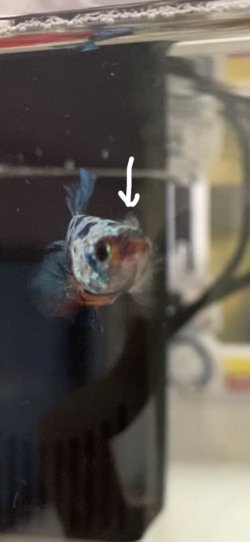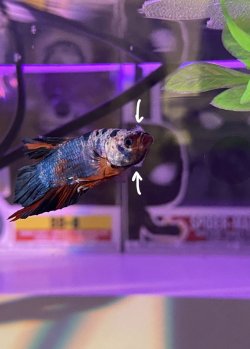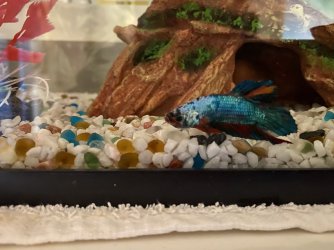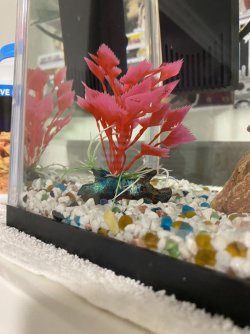If the Betta and mollies are in different tanks, keep the threads separate.
The Betta has fungus and can be treated with salt. The fish has been damaged on that part of the head and fungus has infected the damaged tissue.
The fish spends a lot of time on the bottom because it is sick or old. As the infection gets treated, and the tank cycles, the fish should spend more time near the surface.
--------------------
SALT
You can add rock salt (often sold as aquarium salt), swimming pool salt, or any non iodised salt (sodium chloride) to the aquarium at the dose rate of 1 heaped tablespoon per 20 litres (5 gallons) of water. If there is no improvement after 48 hours you can double that dose rate so there is 2 heaped tablespoons of salt per 20 litres.
Keep the salt level like this for 2 weeks.
The salt will not affect the beneficial filter bacteria, fish, plants, shrimp or snails.
After you use salt and the fish have recovered, you do a 10% water change each day for a week using only fresh water that has been dechlorinated. Then do a 20% water change each day for a week. Then you can do bigger water changes after that. This dilutes the salt out of the tank slowly so it doesn't harm the fish.
If you do water changes while using salt, you need to treat the new water with salt before adding it to the tank. This will keep the salt level stable in the tank and minimise stress on the fish.
When you first add salt, add the salt to a small bucket of tank water and dissolve the salt. Then slowly pour the salt water into the tank near the filter outlet. Add the salt over a couple of minutes.





